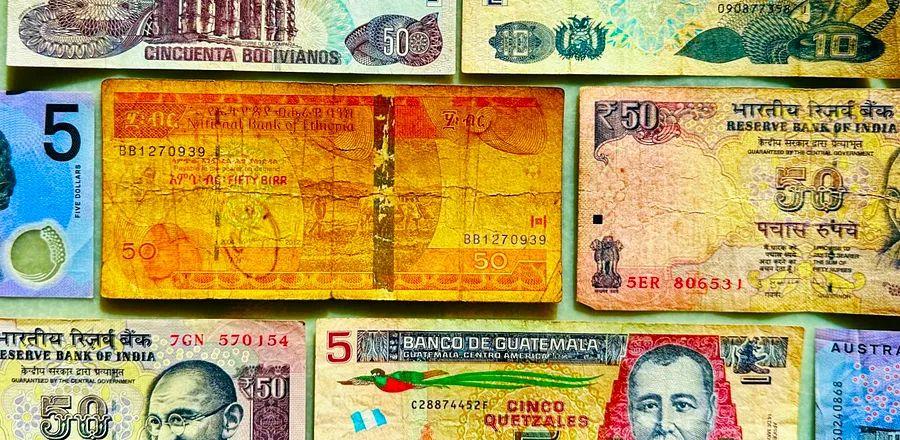How to Handle Extra Foreign Currency

Even though credit cards are the go-to payment method for many Americans, it’s wise to carry some cash when traveling abroad. Countries like Morocco, Egypt, and Greece still rely heavily on cash. Plus, in places that aren’t entirely cash-based, you may encounter vendors, such as street food stalls or local art shops, that don’t accept cards.
You might find yourself with leftover coins or a few banknotes, leaving you pondering what to do with this foreign money once you’re back home.
Luckily, there are plenty of practical and inventive ways to utilize your leftover international currency.
Exchange it
One of the simplest solutions is to convert your leftover coins and banknotes into your home currency or the currency of your next destination. Most international airports feature exchange counters for this purpose, though many only handle banknotes. If your bank can exchange your foreign cash or directly deposit the funds into your account, that's usually a better option since banks generally offer superior rates compared to airport kiosks. Regardless, be aware that exchange rates and fees can differ, so it's wise to compare options for the best deal.
Additionally, some currency exchange services provide 'buyback' programs, allowing you to sell back your unused foreign currency at more favorable rates or with reduced fees compared to standard exchange services. This only applies to currency you've exchanged before; it doesn't cover funds withdrawn from ATMs.
Charitable donations
Make a positive impact by donating your leftover foreign currency to a charity or organization that accepts such contributions. Many airports around the globe have collection boxes where you can drop off your spare change for causes like animal rescues and children's hospitals. If you’re back in the U.S., consider donating to UNICEF, which accepts foreign currency through its Change for Good program. On some international flights, flight attendants may distribute envelopes or collect donations for UNICEF; if not, you can mail your contributions directly to them.
Set it aside for future travels
For frequent travelers or those planning to revisit a specific location (or know someone who is), keeping leftover currency can be a smart move. It saves you from having to exchange money upon arrival, allowing you to cover initial expenses like transport or meals right away.
However, keep in mind that the value of the currency might decrease over time, or the country could stop using that currency entirely. For instance, Bulgaria is expected to join the European Union soon, at which point it will transition from the Bulgarian lev to the euro.
Utilize it to offset your final bill
While your collection of coins and notes may not cover your entire hotel bill or taxi fare to the airport, it could certainly contribute to those costs. When checking out, inquire if you can apply your leftover currency to your bill first, then use your credit card for the remainder. You might find that the person you're paying appreciates having some extra cash on hand.
Sell it through online platforms
If you come across some vintage or rare currency (maybe even something that's no longer in circulation), you might have luck selling it on online platforms like eBay or specialized currency exchange sites. Collectors are often willing to pay good money for unique or rare banknotes and coins.
Save it as a memento
Foreign bills and coins can make for a distinctive and affordable keepsake from your travels. You might choose to showcase it as is or turn it into a crafting project, such as transforming coins into jewelry or fridge magnets.
Add it to your Starbucks card
Before you leave the country, consider taking your leftover currency to a Starbucks and asking the barista to load it onto your Starbucks card. The funds will be automatically converted to your local currency, so you won't need to worry about exchange rates. This option is available in Canada, the UK, Ireland, Mexico, and Australia, according to Starbucks.
Evaluation :
5/5



